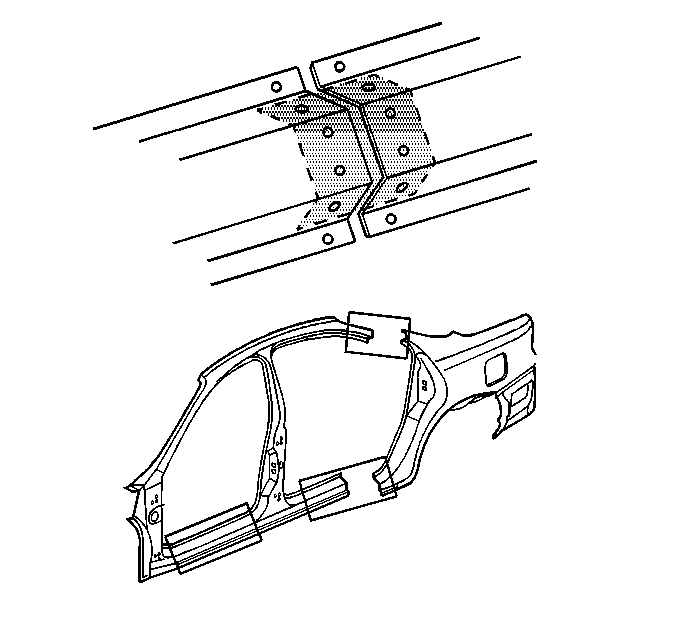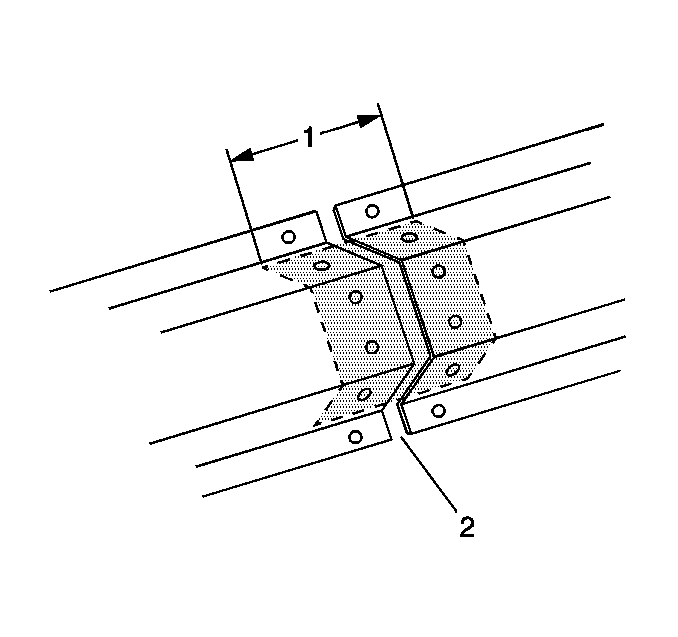For 1990-2009 cars only
Removal Procedure
- Remove all related panels and components.
- Visually inspect and restore as much of the damage as possible.
- Remove sealers and anti-corrosion materials as necessary.
- Cut the panel in the areas where the sectioning is to take place. Sectioning should be performed in recommended areas only.
- Locate, mark and drill out all factory welds. Note the number and location of welds for installation of the service assembly.
- Remove the damaged outer door frame opening.

Important: Use care not to cut the inner reinforcements when cutting the outer door frame.
Installation Procedure
- On service part, mark a horizontal line to leave a gap of 1½ times the thickness of the metal at the sectioning joint (2).
- Cut the outer door frame opening service part along this line.
- Cut a 100 mm (4 in) piece from the unused portion of the service part for a backing plate (1).
- Remove the flange on each side of the backing plate so that it will fit behind the sectioning joint.
- Drill 8 mm (5/16 in) holes for plug welding in the service part in the locations noted from the original panel.
- Also, drill holes for plug welding along the sectioning cuts on both the service part and the original panel.
- Locate the holes approximately 25 mm (1 in) from the edge of the sectioning cuts.
- Prepare the mating surfaces and position the backing plates with 50 mm (2 in) of the backing plate exposed, and plug weld.
- Position the service part to overlap the exposed 50 mm (2 in) of the backing plate.
- Check the fit using 3-dimensional measuring equipment.
- Plug weld accordingly.
- Stitch weld along the sectioning joint.
- Make 25 mm (1 in) welds along the seam with 25 mm (1 in) gaps between.
- Go back and complete the stitch weld. This will create a solid joint with minimal heat distortion.
- Complete all other welds and sectioning procedures as necessary.
- Clean and prepare welded surfaces.
- Prime with 2-part catalyzed primer.
- Apply sealers and anti-corrosion materials as necessary.
- Install all related panels and components.

Important: When sectioning the outer door frame at the lower front hinge pillar or at the center lock pillar, the inner reinforcement panel can be used as a backing plate.
Important: Do not combine paint systems. Refer to paint manufacturers recommendations.
